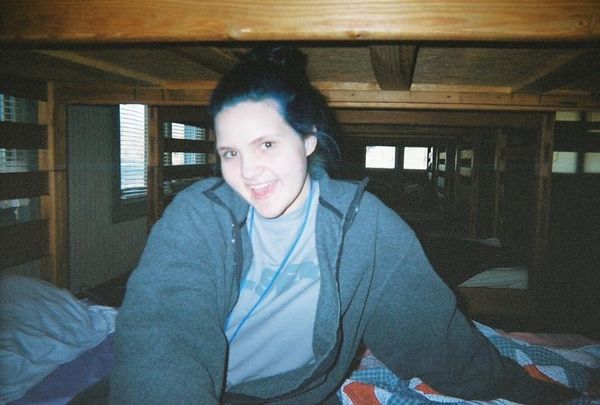The “opioid crisis” sweeping Massachusetts has left a significant population of addicts seeking inpatient detox around the state, the majority of whom are unable to receive it immediately.
With major hospitals filling up beds on a daily basis, outpatient treatment (OPT) is slowly becoming the first option for addicts. Unfortunately, outpatient centers around the state have become just as overburdened as hospital beds.
Annie Park, Program Director at Adcare Hospital’s West Springfield Outpatient Counseling Center, has observed that many of the opioid-dependent patients she sees come in with no prior history of detox, or inpatient hospitalization for that matter.
“A lot of the times, people seek (outpatient) services out of a crisis situation,” says Annie Park, Program Director at Adcare’s West Springfield Outpatient Counseling Center. “We have a lot of people who come in ‘off the street’ so to say.”
A 2015 trust fund expenditure report provided by the Massachusetts Bureau of Substance Abuse Service (BSAS) shows that more than 15,000 “clients” have already been registered to receive OPT in state-accredited locations during Q1 of the fiscal year.
This is the single highest number of clients registered in any form of treatment, while inpatient programs are taking on between 5,000 and 8,000 clients respectively.
Despite the high number of outpatient locations around the state compared to hospitals, addicts who are wary or new to the process of getting help are overburdening OPT centers.
2014 data provided by Scott Peeler, Director of Case Management Services at Adcare’s Worcester hospital shows that 39 percent of patients were treated for opioid dependence at all Adcare locations in 2014, a five percent increase since 2013.
A recent study by the Mass General Hospital Center for Addiction Services found that around 83 percent of addicts had withdrawn from their respective outpatient programs at least one year after treatment.
Park notes that patients at her office often come in for an initial evaluation only to be never seen again. According to her, the stigma attached to heroin abuse often forces an addict to seek counseling at the various OPT centers before he or she is comfortable to receive treatment.
According to BSAS records, there are 121 OPT centers in Massachusetts for the treatment of opioid dependence, half of which are state-funded. These numbers are relatively high in comparison to the 37 inpatient hospitals in the state, only 24 of which are long-term, Acute Treatment Services.
Adcare outpatient counselors traditionally referred addicts in need of immediate detox to one of the care company’s two hospitals, or a local one. For Park’s West Springfield location, this process has become less feasible with the increasingly large number of addicts crowding inpatient hospital beds each day.
“In order for treatment facilities to be fiscally viable, we can’t have one (inpatient hospital) in each county,” says Hilary Jacobs, Senior Policy Advisor to the BSAS.
“It’s not so much that there’s a waiting list, it’s just that inpatient locations are much bigger than us in terms of the volume of patients that they treat,” says Park.
Director Park has also noted that patients are often referred to OPT as a result of legal or family issues associated with drug use.
According to her, employer groups are paying more attention to opioid abuse in the workplace; this has resulted in an increase in the number of outpatient referrals at Adcare clinics.
Employee Assistance Programs (EAPs) are offered by employers to protect and help workers who are having personal issues. Employers usually make outpatient referrals when they observe that an employee’s drug use has impeded his or her ability to work.
Outpatient services at Adcare have also seen a decline in patients seeking treatment for alcoholism. According to Peeler, alcoholics made up 54 percent of Adcare OPT numbers in 2013. Today, they make up close to 10 percent less, at 45 percent - a decline directly attributed to the increase in opioid outpatient referrals.
“You can really tell when people who are on heroin, or an opioid at court mandated AA meetings,” says Dale Binette, a recovering alcoholic of Hatfield, MA.
“They’re usually nodding off or just completely out of it. It’s definitely an epidemic in this state.”
Binette attends daily AA meetings as a personal choice; however, most opioid addicts are mandated to attend. Achievements such as gold tokens are given to those in recovery as an incentive to gain an established trust in the eyes of doctors.
The rise of buprenorphine (known under the brand-name suboxone), a drug that reverses the euphoric effects of heroin, has given insurance companies the incentive to refer patients to OPT over inpatient hospitalization.
In 2002, the FDA approved the drug as one that did not have to be dispensed at an Outpatient Treatment Program (OTP). Under the Drug Addition Treatment Act of 2000, “qualified office-based MDs” are given the ability to receive a waiver to prescribe buprenorphine for opioid dependence and/or detox, according to an American Society of Addiction Medication (ASAM) pamphlet.
“Some insurance companies who manage care companies aren’t always as willing to put people inpatient for opioid dependence because it can be done on an outpatient basis. So you see less admissions based upon insurance policies,” says Park. “This isn’t a disease where people don’t relapse.”
Adcare policy requires that patients be evaluated either over the phone or in person within a 2-day timeframe to determine the patient’s level of care. Adcare outpatient centers are required to have same-day treatment for referrals or walk-ins.
Adcare admissions policy follows ASAM criteria, which provides an evaluations plan made up of six levels of treatment “to create a holistic, biopsychosocial assessment of an individual.” According to ASAM’s website, 108 physicians adhere to this criteria in the state.
Federal guidelines now permit opioid-based treatment physicians (OTPs) to treat up to 100 patients at a time with buprenorphine, a number that has not changed since 2006, when the National Drug Control Policy Reauthorization Act increased the 30 patient limit to 100.
From a BSAS perspective, Jacobs believes that opioid-based outpatient providers are “underutilized,” in comparison to inpatient treatment facilities, where patients are referred constantly from both Transitional Services (TSS) and other OTPs.
Park, among others, hopes that this law will be changed. According to her, this would allow physicians to treat patients on a more consistent basis, as they do not have to work around the patient-limit.
She also believes that the increase in opioid outpatient admissions at Adcare and is due to not only a lack of beds, but also a “clear lack of outpatient medication-assisted treatment options.”
Companies like Tapestry Health and Clinical and Support Options offer pre-treatment assessment and advice for addicts who are unsure about where to begin before getting inpatient help. Both have needle-exchange programs and a ready supply of NARCAN, the opioid overdose-reversal drug given to police and EMTs.
“We’re not necessarily ‘pushing’ treatment on them (addicts),” says Brita, an employee at Tapestry Health in Holyoke. “Our goal is to reduce an addict’s potential for self-harm before receiving MD treatment.”





















